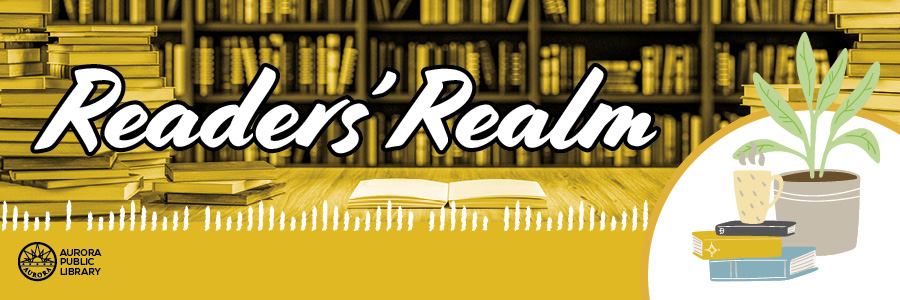Welcome to Aurora Public Library’s blog. A place where our library staff share their thoughts, insider knowledge and overall love of all things book and community.
Feel free to comment on posts, re-blog and enjoy. To ensure a civil and focused discussion, comments will be held for a brief period before being published.

Mental Health Spotlight: Addiction
Resources listed are for informational purposes only and should not be used to diagnose or treat a condition without the guidance of a mental health professional. If you or someone you know is having a mental health emergency, please call 911 or Colorado Crisis Services at 1.844.493.TALK.
Hey teens! Interested in mental health?
Each month the Aurora Public Library focuses on a different topic related to mental health. Swing by the Aurora Central Library's teen area to browse YA novels and nonfiction related to the monthly topic. Whether you or someone you know is facing a mental health issue, or you are just interested in the topic, APL has information, resources and reading materials for you.
Remember, your mental health matters.
This month’s Mental Health Spotlight is on eating disorders.

Eating disorders are real, complex, bio-psycho-social diseases that can have a serious impact on health, productivity and relationships. They are NOT fads, phases, or lifestyle choices. Anyone can develop an eating disorder—no matter your age, race, gender or weight.

The most common eating disorders are anorexia, bulimia and binge eating disorder.
People struggling with an eating disorder often become obsessed with food, body image and weight.
Take this short screening to determine if you may be grappling with eating disorder behaviors and if it's time to seek professional help.
About Eating Disorders
Eating Disorders are one of the most misunderstood mental illnesses. They also have one of the highest mortality rates. While eating disorders manifest in behaviors regarding food and weight, eating disorders revolve around control. An eating disorder can give someone a false sense of security and order. Eating disorders often co-occur with other mental illnesses, such as depression, bipolar disorder, anxiety or post-traumatic stress disorder.
Learn more from the resources below:
- Types of Eating Disorders
- What Does Compulsive Overeating Feel Like

Create It! Clover Crafts
by Karen
It's a lucky day! Karen shares some easy and fun DIYs perfect for celebrating St. Patrick's Day!

HELLO stands for Hand-on Early Literacy for Little Ones. In this program children will sing songs, work on fine and gross motor skills, learn about letters, numbers and science and develop early literacy skills. Ages 0-6.
This week's video is all about the letter I, as in iguana!

Reader's Realm: Fantasy
with Lisa
OK, this is it; we’re finishing up FANTASY. Keep commenting or join in now.
A new genre/category will begin next week, so you can start looking for a book. Let’s go to SPORTS next.
As you finish your book, did you like the ending? Did the magical creatures and humans work together or against each other? Did magic/fantasy play a real part in how the problem worked out? Please include the title and author of the book you’re reading in your post.
In my book, "The Goblin’s Puzzle" by Andrew S. Chilton, the goblin stays true to his goblin self – he has said before that goblins and humans can never become friends. But he still manages to help the boy get out of a sticky situation. Even though fantasy is a big part of the story, I mean there are goblins and dragons, the problem is really solved through logic. The goblin always finds a way to think his way out of problems and guides others, sometimes by telling them the opposite – as goblins often do. I like how the goblin is such a real character with a lot of sides to him.
Remember we’ll start next week with SPORTS! The choice of book is totally up to you - what will you read?
|